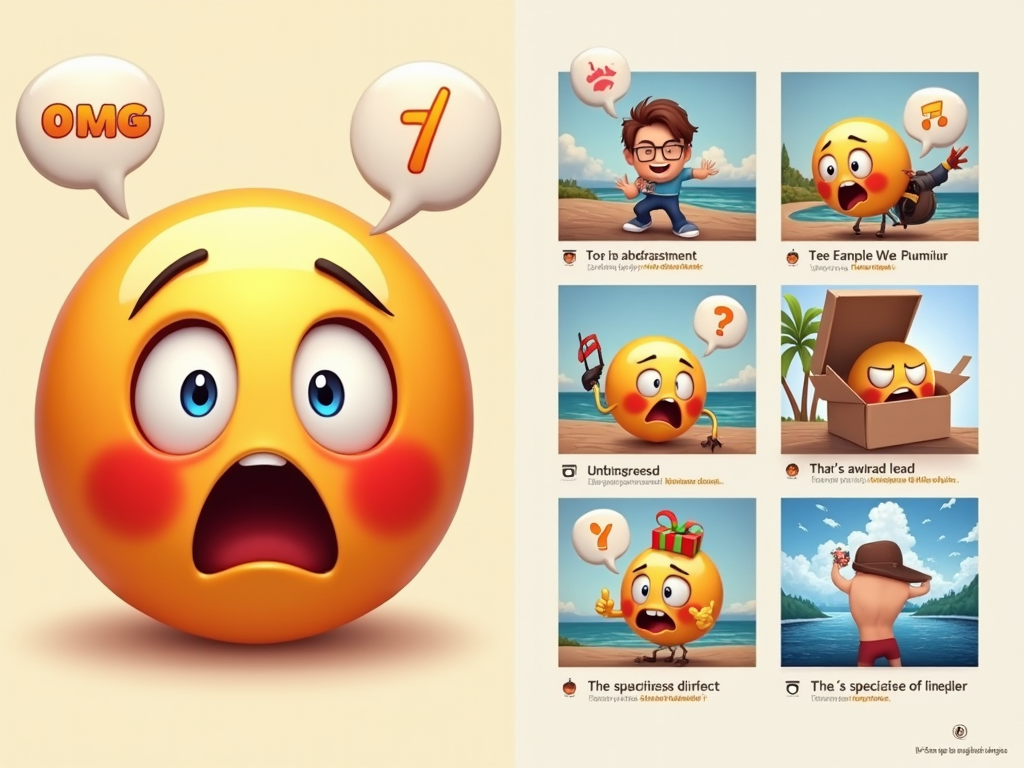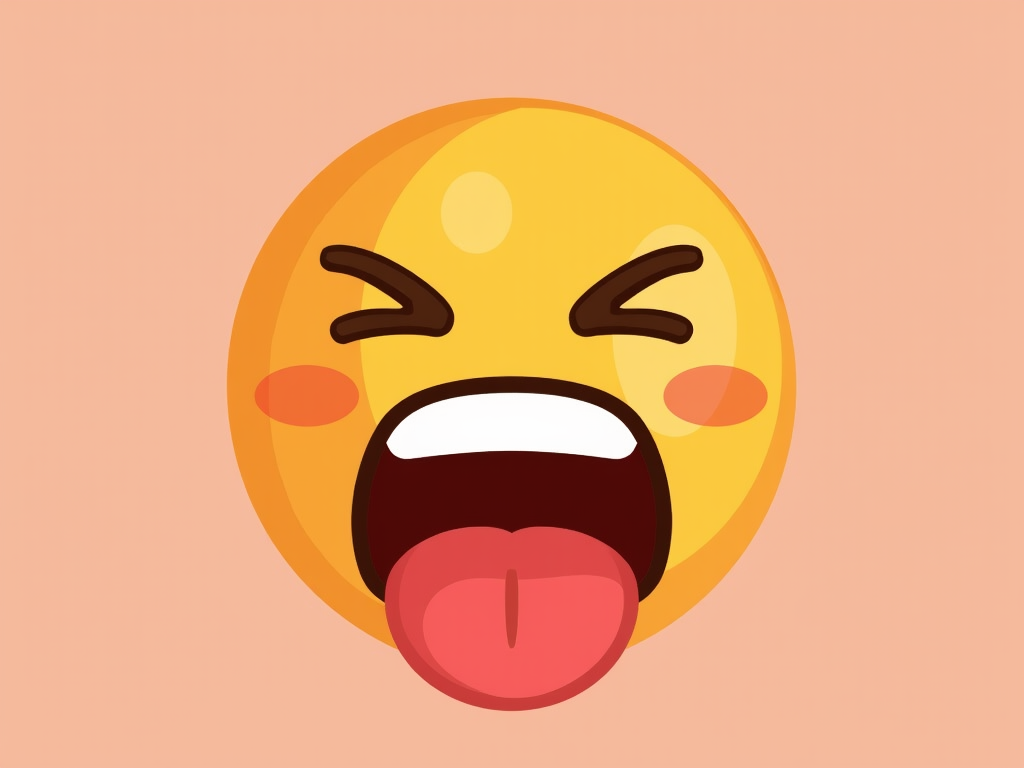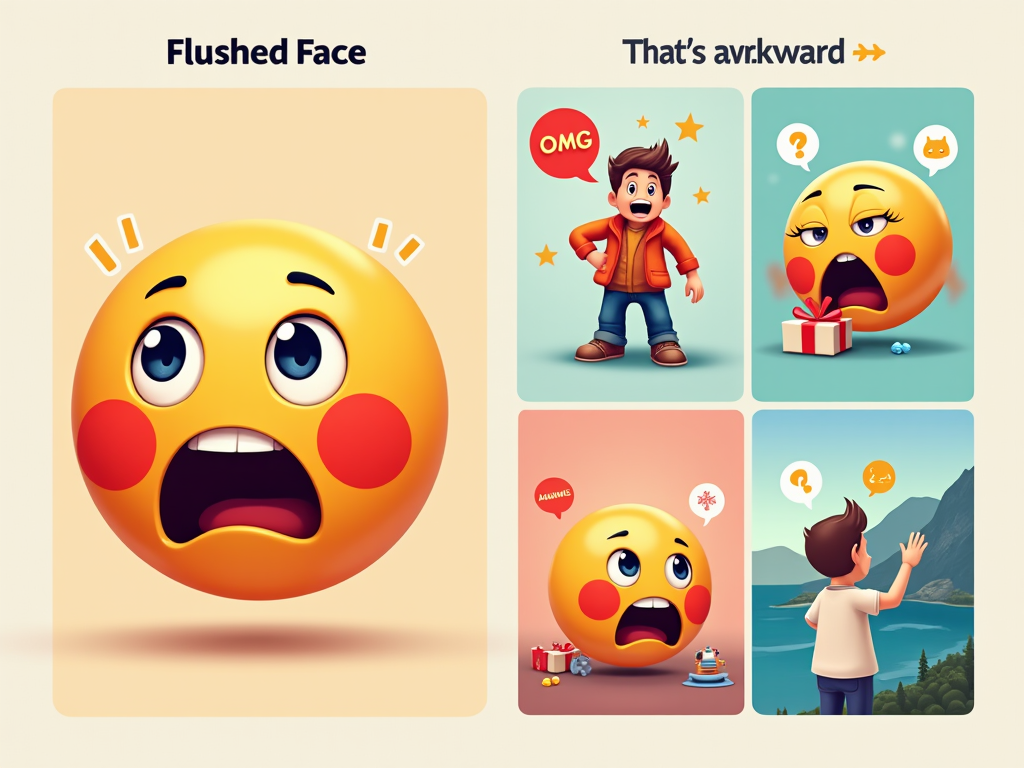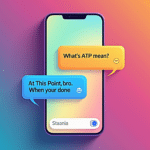Ever found yourself staring at the 😳 emoji, wondering what it really means? You’re not alone! This little red-cheeked face, known as the Flushed Face emoji, has become a staple in our digital conversations. But what exactly does 😳 mean, and how can you use it without looking like a total newbie? Let’s dive in and unpack this expressive little icon.
| Key Takeaways | Meaning |
|---|---|
| Primary Meaning | Embarrassment, shame, or shyness |
| Secondary Uses | Surprise, disbelief, awkwardness |
| Cultural Variations | Different interpretations in Western vs. Eastern contexts |
| Usage Tips | Context-dependent, adds emotional depth to messages |
What Does 😳 Mean? Decoding the Flushed Face Emoji

The Official Lowdown
Alright, let’s get the boring stuff out of the way first. Officially, the 😳 emoji is called the “Flushed Face” and it’s meant to show embarrassment, shame, or shyness. But here’s the thing – emojis are like slang. They evolve, and their meanings can shift faster than you can say “LOL.”
What It Really Means (In the Wild)

Embarrassment: The OG Meaning
Picture this: You’re texting your crush and accidentally send a message meant for your best friend. Cue the 😳 emoji! It’s perfect for those “OMG, I can’t believe I just did that” moments.
Surprise: The Plot Twist
Sometimes, 😳 is less about blushing and more about your jaw hitting the floor. It’s the digital equivalent of wide eyes and raised eyebrows. For example:
“Did you hear? Tom and Sarah broke up 😳”
Awkwardness: The Silent Scream
Ever been in a situation where you just want to disappear? That’s where 😳 comes in handy. It’s like saying, “Well, this is awkward” without actually saying it.
The Business Side of 😳
Believe it or not, this little red-faced buddy has a place in professional communication too. It’s like the business casual of emojis. Here’s how to use it without getting fired:
- Show Humility: Won an award? “Just found out I got Employee of the Month 😳” shows you’re pleasantly surprised and humble.
- Express Gratitude: “Thank you for the unexpected bonus 😳” conveys genuine surprise and appreciation.
- Tread Carefully: Remember, not every boss will appreciate emojis. Know your audience!
Cultural Remix: 😳 Around the World

Just like American vs. British slang, the 😳 emoji can mean different things depending on where you’re from:
- Western Interpretation: Usually more casual, often used humorously.
- Eastern Interpretation: Might be seen as more intense or serious.
When Not to Use 😳
Okay, let’s talk about when to keep this emoji in your pocket:
- Serious Conversations: Discussing heavy topics? Maybe leave 😳 out of it.
- Formal Emails: Unless you’re BFFs with your CEO, keep it professional.
- Breaking Bad News: “Your goldfish died 😳” is not cool. Just… don’t.
The Evolution of 😳
Emojis are like living creatures – they evolve. The 😳 emoji has gone from a simple “oops” to a multi-faceted expression of surprise, embarrassment, and even flirtation. It’s like the VSCO girl of emojis – constantly changing and adapting to new trends.
Wrapping It Up
So there you have it – the 😳 emoji in all its blushing glory. It’s more than just a red-faced smiley; it’s a versatile tool in your digital communication arsenal. Whether you’re expressing shock, embarrassment, or just trying to lighten the mood, 😳 has got your back.
Remember, emojis are like the seasoning in your text soup. Use them to add flavor, but don’t overpower the message. And hey, if you’re ever in doubt, there’s no shame in asking “What does that emoji mean?” We’ve all been there!
In the end, communication is all about understanding each other. So whether you’re using 😳, throwing shade, or trying to decipher what WYLL means, the key is to keep the conversation flowing. Now go forth and emoji with confidence! 😎👍







